We must curb the rise of unscrupulous media
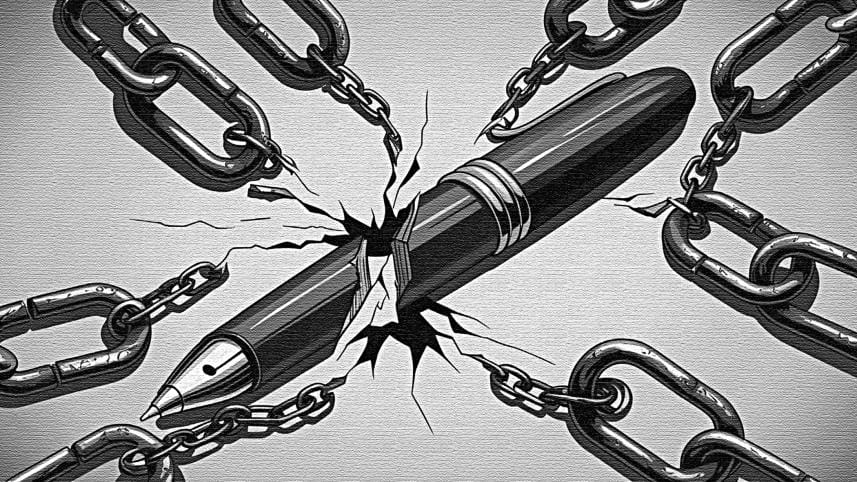
TDS: How would you evaluate the current media scenario in Bangladesh?
Kamal Ahmed (KA): Two crucial factors for press freedom are journalists' economic independence and a sustainable industry business model. When employers do not pay journalists, there is a significant risk of compromising their principles and ethical codes, which is already a widespread issue. Outside Dhaka, many journalists work for media houses without salaries or employment guarantees. This financial insecurity drives them toward economic compromises that lead to corruption and deviate from the fundamental mission of truth-telling.
Similarly, media houses without sustainable business models often rely on big businesses and the government for advertisements and financial support. This dependency creates undue influence, shielding businesses and funnelling external funds to sustain media outlets. It creates a vicious cycle that undermines press freedom. This is a key reason for the media's failure to carry out responsible and objective journalism.
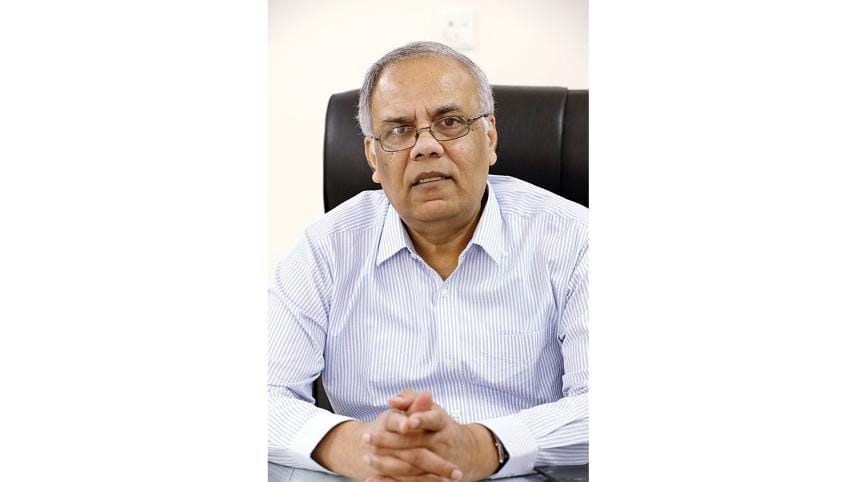
TDS: What key reform recommendations has the commission received from stakeholders?
KA: Stakeholders overwhelmingly emphasised the need for economic freedom and job security for journalists to ensure honest, independent journalism. Fair compensation from employers is crucial to reduce corruption and lobbying. Secondly, people have expressed concerns about the proliferation of unscrupulous media. A myriad of portals is popping up daily—sometimes by the hour—that have no public interest. Their main objective is to gain advantages for businesses and political power, often for political favours. This is causing serious harm to journalism. This influx of media outlets is not serving the public interest. Stakeholders stress the need to curb the unchecked rise of unscrupulous media.
There are also questions about whether the market has the appetite for this vast number of media outlets—46 TV channels, 22 radio stations, hundreds of newspapers, and thousands of online platforms. Reforms may be necessary to remove unethical players from the industry. To inform these recommendations, we visited seven divisional headquarters, held meetings with district representatives, and engaged with hundreds of practitioners, publishers, editors, and journalists across various media sectors. These insights shaped our proposed reforms.
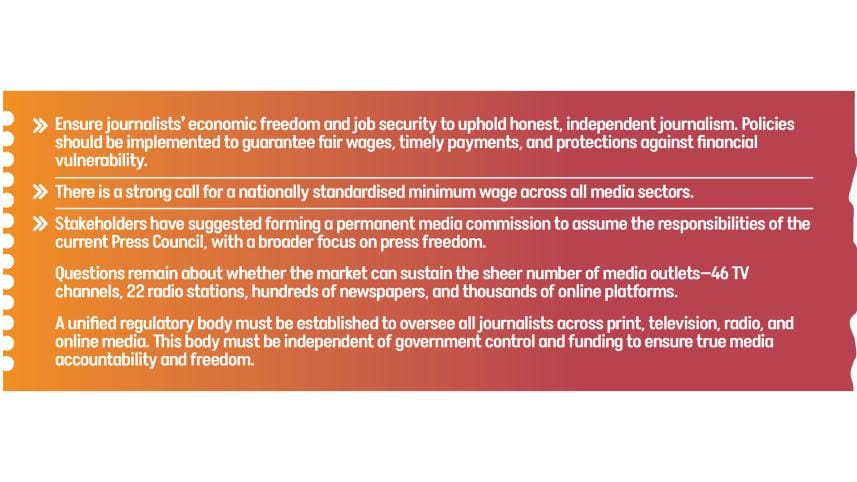
TDS: How is the commission tackling key issues of journalists' rights, including wage board implementation, timely salaries, and risk allowances?
KA: The wage board is not within the remit of this commission, so we will not discuss it. However, we found a dominant view among working journalists outside Dhaka that they are not benefiting from the wage board. In fact, some ownersfalsify records to claim they are implementing the wage board, even though they are not. These owners also manipulate circulation figures to receive higher advertising rates. As a result, owners benefit, while only a few journalists see any advantage from the wage board.
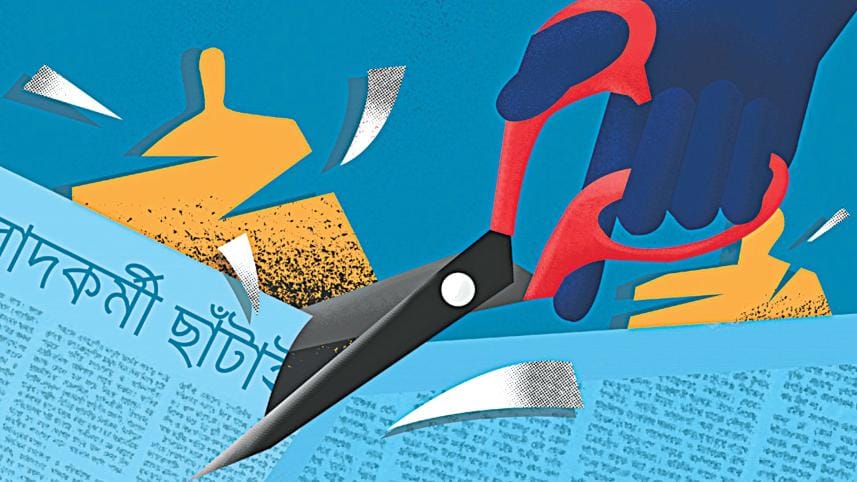
Additionally, the wage board is limited to the newspaper industry and does not cover electronic media, including television channels, radio, and online outlets. There is a strong demand for a nationally accepted salary floor for the entire media industry, regardless of the type of media they work in.
Media reform depends on investors, many of whom resist compliance with regulations and disregard employment laws, making them likely opponents of enforcing journalists' rights.
TDS: The politicisation of journalists' unions often undermines their ability to negotiate effectively with media owners. What are the commission's recommendations to tackle this issue and strengthen the unions' capacity to represent journalists' interests?
KA: Union activities, including whether there should be a single union or multiple unions, are not within the remit of this commission, and we cannot offer an opinion on that. However, based on the feedback we received from the field, we do feel that in the absence of a strong union, journalists' rights are being compromised, ignored, and undervalued.
There is a sentiment that there should be a strong union, but whether and how a stronger union can emerge depends on the journalists themselves.
Conversely, journalists across the country are deeply divided. In some upazilas, there are as many as four press clubs. In certain cases, internal conflicts among rival journalist groups have forced the administration to intervene—appointing administrators for press clubs or even having deputy commissioners take over as district press club presidents, as seen in Mymensingh, Rangpur, and Chattogram.
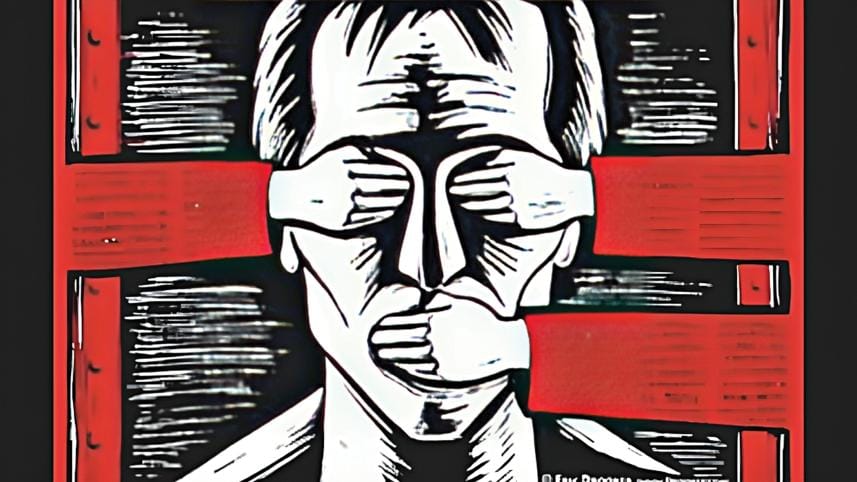
Such disunity is deeply disheartening. The root cause of this division seems to stem from petty interests, such as owning a building for the press club, collecting monthly rents, or pursuing other financial gains. These financial motives fuel rivalries, leading to disunity and the formation of parallel organisations.
TDS: What recommendations are being considered to ensure sustainable media ownership, especially for smaller, independent outlets?
KA: A key issue is assessing whether a media house serves the public interest. A clear test should determine if it prioritises group or party interests—such outlets should not receive public funds, state sponsorship, government ads, or tax benefits. Support for newsprint, broadcasting equipment, and electronics must be transparent, corruption-free, and accountable to curb industry malpractices.
Fraudulent certifications and inflated circulation numbers distort competition and fuel corruption. Advertisement rates should be based on accurate circulation figures. Two methods currently exist. One involves inspection by government officials and teams assisted by representatives from the industry, including journalists, union members, owners, and other employees. Another approach is to link circulation figures to annual tax returns. A newspaper having 100,000 copies in circulation would not report 150,000 for tax purposes. While this policy already exists, it remains unenforced. Proper implementation would curb fraud and push dishonest players out of the industry.
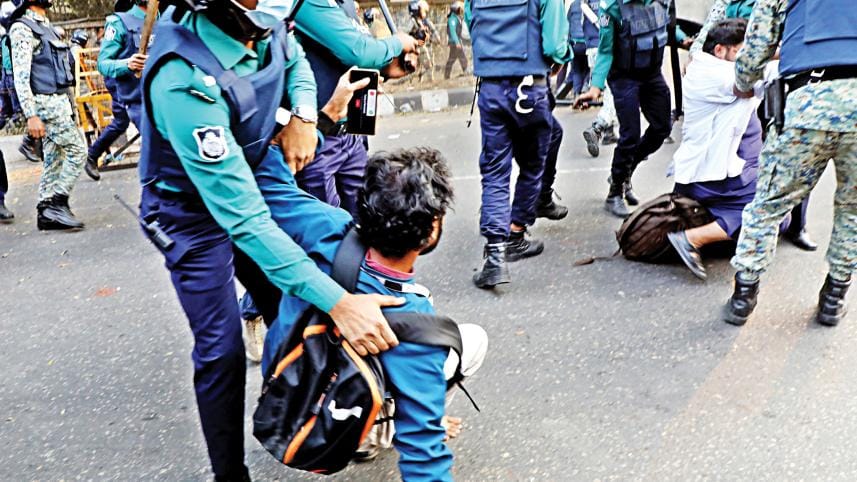
Additionally, many media owners violate employment laws by denying job security, failing to issue appointment letters, and terminating employees unlawfully. Media houses not complying with these laws should be penalised. Practical steps include enforcing labour laws and eliminating corrupt practices for a fair and accountable media environment.
TDS: How can the Press Council be strengthened to effectively regulate media accountability and uphold press freedom?
KA: Established in 1974, the current Press Council has failed to uphold press freedom, as seen in its approval of Dainik Dinkal's closure. Having lost its purpose, its very existence is now in question. There is a pressing need for reform and the creation of a unified regulatory body covering all journalists across print, television, radio, and online media. This body must remain independent of government control and funding. A possible model could be drawn from the Press Council of India, which sustains itself through a one-percent levy on newspapers.
A self-regulatory body should function as both a grievance mechanism and a mediator while protecting journalistic rights. Stakeholders have suggested forming a permanent media commission to assume the responsibilities of the current Press Council, with a broader focus on press freedom. Additionally, there is a strong call for a national journalism standard—a universally accepted code of ethics. This permanent commission would ensure industry adherence to these standards, fostering effective media regulation and ensuring journalists comply with ethical guidelines.
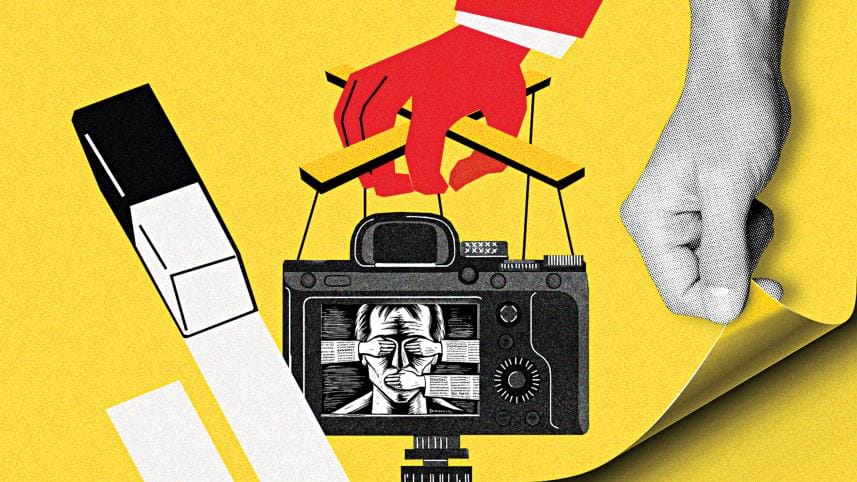
TDS: What legal reforms is the commission considering to safeguard media freedom?
KA: We are seriously considering this. Several countries have already enacted laws to protect media freedom. In the European Union, there is a region-wide law that safeguards media freedom, prohibiting the invasion of reporters' privacy and protecting them from state or agency surveillance.
Pakistan has also proposed a press freedom protection law, which is in its final stages of approval. This law would make the government bound to ensure the protection of journalists while they work. Under this law, professional journalists cannot be intimidated, harassed, threatened, or legally sued for carrying out their professional duties. The responsibility for enforcing these protections would lie with the government. We need to propose and consider implementing a similar law to safeguard press freedom and protect journalists in their work
TDS: What are the challenges in implementing reform recommendations, and what steps are needed to address them?
KA: Media reform depends on investors, many of whom resist compliance with regulations and disregard employment laws, making them likely opponents of enforcing journalists' rights. Additionally, media ownership is often concentrated, limiting fair competition. Investors with political ties may resist reforms, creating challenges for any government. However, the interim government has the authority to enforce existing laws, which, if implemented properly, could bring significant change to the media landscape.
The interview was taken by Saudia Afrin.




 For all latest news, follow The Daily Star's Google News channel.
For all latest news, follow The Daily Star's Google News channel.
Comments